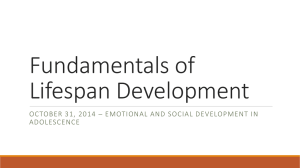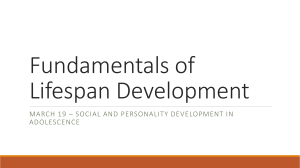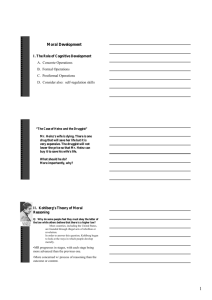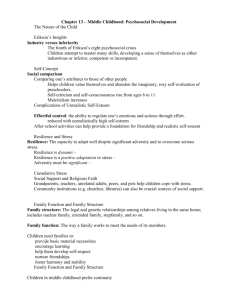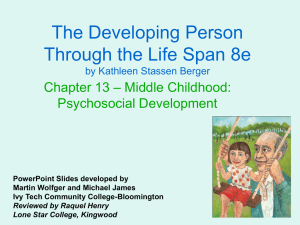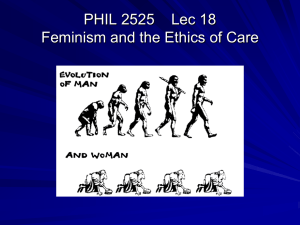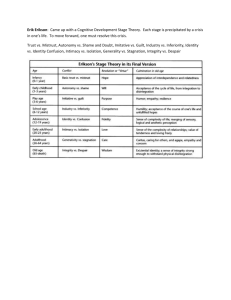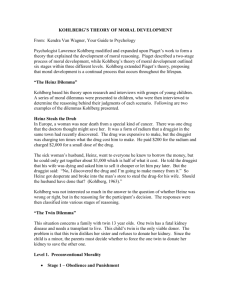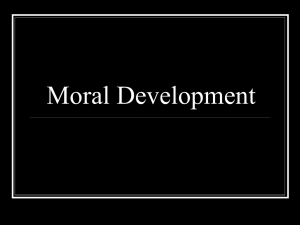Kohlberg's Moral Stages: Development & Theory
advertisement
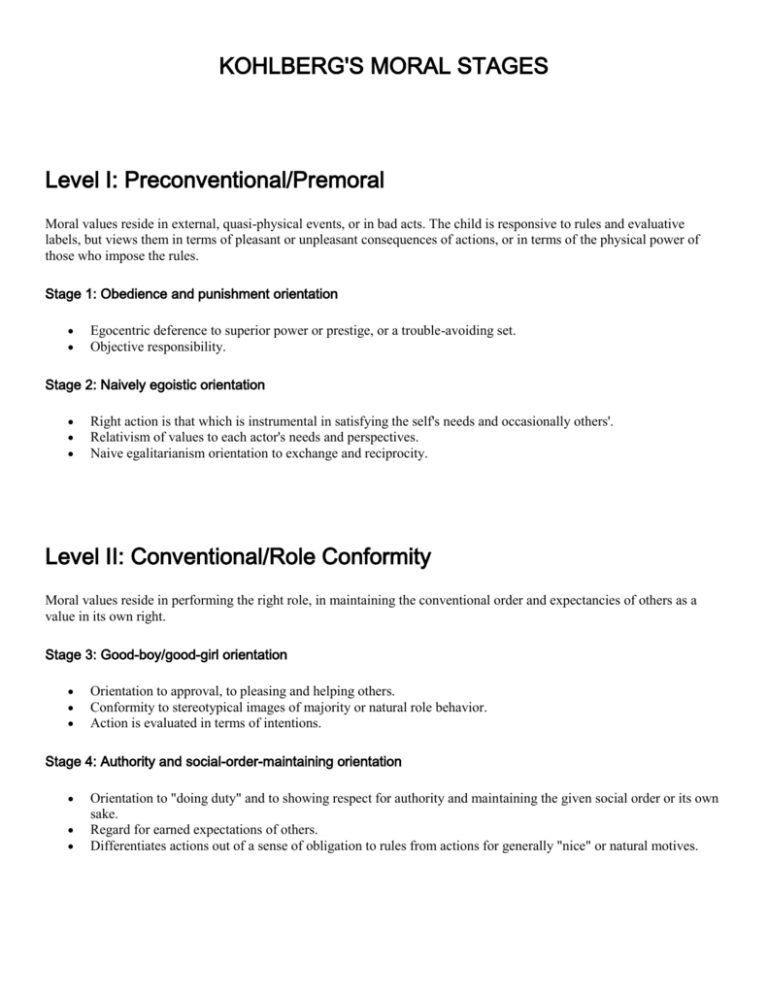
KOHLBERG'S MORAL STAGES Level I: Preconventional/Premoral Moral values reside in external, quasi-physical events, or in bad acts. The child is responsive to rules and evaluative labels, but views them in terms of pleasant or unpleasant consequences of actions, or in terms of the physical power of those who impose the rules. Stage 1: Obedience and punishment orientation Egocentric deference to superior power or prestige, or a trouble-avoiding set. Objective responsibility. Stage 2: Naively egoistic orientation Right action is that which is instrumental in satisfying the self's needs and occasionally others'. Relativism of values to each actor's needs and perspectives. Naive egalitarianism orientation to exchange and reciprocity. Level II: Conventional/Role Conformity Moral values reside in performing the right role, in maintaining the conventional order and expectancies of others as a value in its own right. Stage 3: Good-boy/good-girl orientation Orientation to approval, to pleasing and helping others. Conformity to stereotypical images of majority or natural role behavior. Action is evaluated in terms of intentions. Stage 4: Authority and social-order-maintaining orientation Orientation to "doing duty" and to showing respect for authority and maintaining the given social order or its own sake. Regard for earned expectations of others. Differentiates actions out of a sense of obligation to rules from actions for generally "nice" or natural motives. Level III: Postconventional/Self-Accepted Moral Principles Morality is defined in terms of conformity to shared standards,rights, or duties apart from supporting authority. The standards conformed to are internal, and action-decisions are based on an inner process of thought and judgement concerning right and wrong. Stage 5: Contractual/legalistic orientation Norms of right and wrong are defined in terms of laws or institutionalized rules which seem to have a rational basis. When conflict arises between individual needs and law or contract, though sympathetic to the former, the individual believes the latter must prevail because of its greater functional rationality for society, the majority will and welfare. Stage 6: The morality of individual principles of conscience Orientation not only toward existing social rules, but also toward the conscience as a directing agent, mutual trust and respect, and principles of moral choice involving logical universalities and consistency. Action is controlled by internalized ideals that exert a pressure to act accordingly regardless of the reactions of others in the immediate environment. If one acts otherwise, self-condemnation and guilt result. LAWRENCE KOHLBERG 1927-1987 Lawrence Kohlberg spent many years researching how an individual develops his/her own moral codes. First, Kohlberg was born into wealth on October 25, 1927 in Bronxville, New York. Even though he was wealthy, he chose to become a sailor; and after World War II, he helped to smuggle Jews through the British blockade of Palestine. In 1973 Kohlberg developed a tropical disease, and while hospitalized in 1987, was reported missing on January 17. His body was later recovered from a marsh; however, the exact date of his death remains unknown. Rumor is that he committed suicide. For his doctoral research Kohlberg studied differences in children's reasoning about moral dilemmas. He hypothesized that moral difficulties motivated their development through a fixed sequence of increasingly flexible kinds of moral reasoning. He also helped to clarify the general cognitive-developmental view of age-related changes. Thereafter, Kohlberg became a leader in moral education. Kohlberg was a psychologist who applied the developmental approach of Jean Piaget, whom he studied under, to the analysis of changes in moral reasoning. Kohlberg was a professor and did most of his research at Harvard University.

